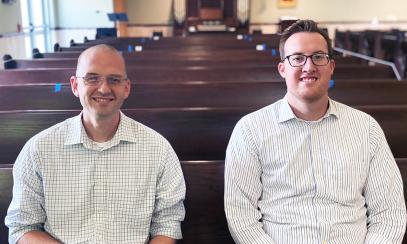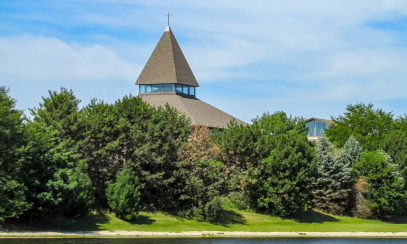
Discipleship Formation Tips and Pitfalls
The following list was compiled and shared by Sean Lazzari, a parishioner at St. Daniel the Prophet in Wheaton.
- Use the power of intercessory prayer. Have the intercessors and your parish-at-large pray daily for the transformation to discipleship.
- It is the Holy Spirit who will guide the parish as a community and its individual members to conversion as disciples. Books and programs can assist, but it is only through the Spirit that we can truly come into proper relationship with Jesus and our Father in heaven.
- Find your formed disciples. These are not necessarily the most active parishioners or the most pious parishioners. Look for those with the heart of Jesus. Deacon Keith Strohm, a discipleship expert, speaks of six attributes of a disciple: (1) daily Scripture reading; (2) daily prayer life; (3) living a Sacramental life, such as daily Mass attendance and frequent reconciliation; (4) fellowship and community with others in the parish; (5) service — tending to the poor, the needy, the sick, elderly, living with the heart of Jesus; and (6) an evangelizing spirit — the sharing of Jesus with others.
- Do not just run another program. Programs need to be viewed as an introduction to the concepts of discipleship. The real formation starts with the follow-up where formed disciples will accompany those seeking a personal relationship with Jesus and assist them as they grow in prayer, in Scripture, in the sacraments and in living a life with the heart of Jesus.
- Find formed disciples to plan, run and lead your formation programs. “Only disciples can make disciples.”
- Whatever path you choose, it must be communicated clearly as THE NUMBER ONE PRIORITY OF THE PARISH. It should come before all other ministries and parish activities to include religious education. (How many formed disciples do we have teaching our children???)
- The formation process must be front-and-center in every homily, every bulletin, and every bulletin board and brought up at every meeting of every committee.
- Pastors must take the lead in all of this, not just hand it off to the adult faith formation leader or parish council leader. The pastor must be disciplined, invested, relational, accountable, surrendered, and empowering to the process.
- Parish staff must be made accountable to the process and assist the pastor in making the transformation. The status quo is not acceptable. The fact that something has been done this way forever is probably a good reason to change it.
- There has to be a continuing follow-up to the formation process, from the introduction to the formation, to the actual formation of disciples, then to the formation of missionary disciples, to the sending out into the community of the missionary disciples and to their bringing in new individuals to start the formation anew.


